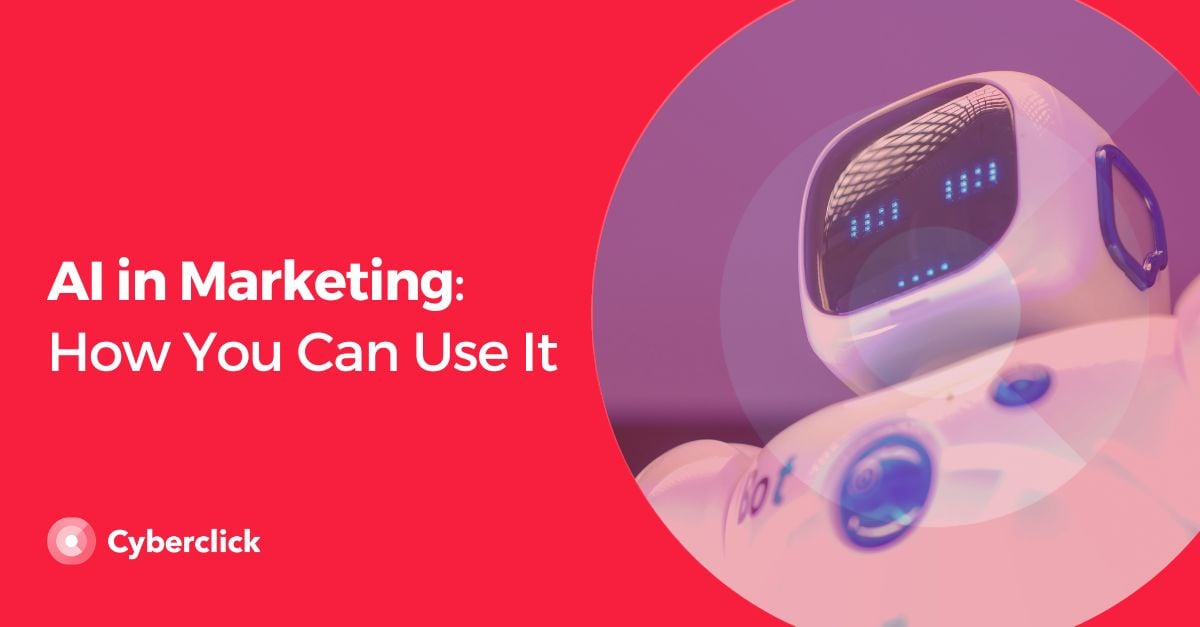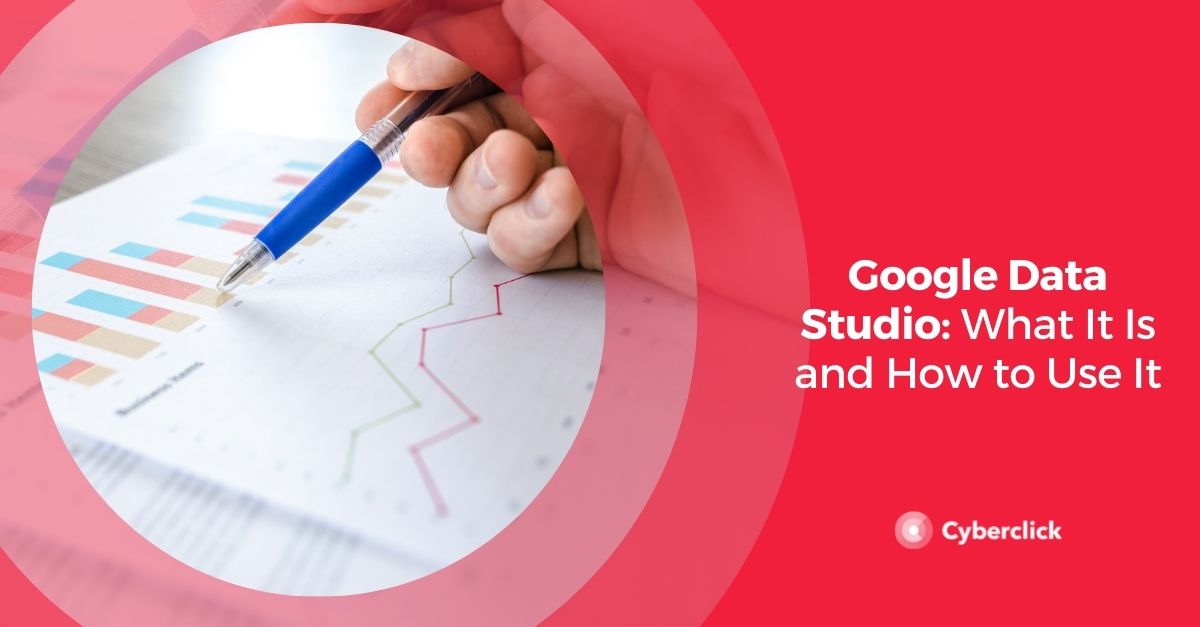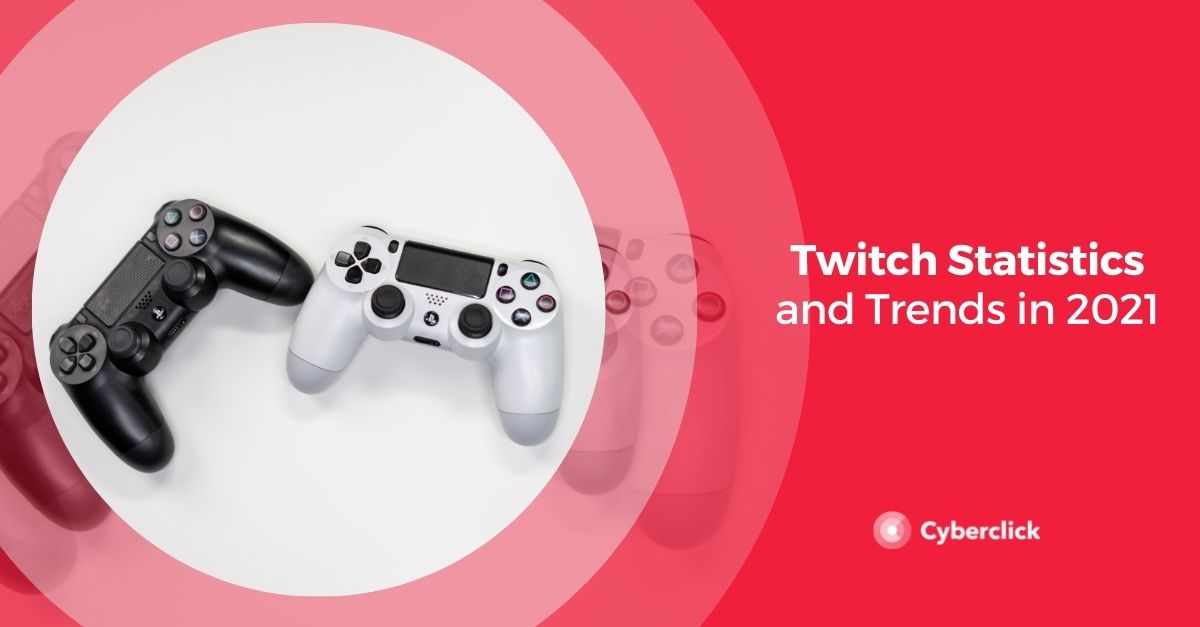The use of AI in marketing is on the rise and it’s no surprise why. It holds tremendous potential to help us optimize, improve, and streamline our marketing efforts with increased efficiency and effectiveness. AI can power our ability to personalize customer experiences, discover which content resonates best with clients and followers, and helping marketers gain better insights from their data.
By combining the power of technology with human creativity and drive, we can create personalized experiences that add value to our customers while also driving growth. To harness these powerful opportunities, start exploring how to use AI in your marketing.

What Is AI in Marketing?
AI in marketing refers to using Artificial Intelligence to automate and optimize marketing strategies. By leveraging AI-powered technology, marketers can collect customer data and better understand consumers' preferences, habits, and behavior, helping them create targeted campaigns tailored to the individual customer's needs. AI-driven personalization capabilities allow marketers to deliver personalized content with greater accuracy and speed, resulting in improved engagement metrics and increased conversions.
Additionally, AI helps marketers track user interaction with their campaigns, providing valuable insights into audience metrics that can then be used to optimize future campaigns for better results. Overall, AI in marketing presents a powerful way to increase engagement alongside cost-savings due to its ability to streamline repetitive tasks associated with marketing efforts.
Popular AI Marketing Tools You Can Use
AI can offer a plethora of helpful tools for modern businesses looking to make the most out of their marketing strategy. We'll delve into some of the most popular AI marketing tools available today so that you can unlock their potential for success!
Drift
Drift is an AI-powered marketing tool that helps companies create personalized, automated, customer conversations. Its conversational platform lets you quickly respond to customer inquiries and generate more leads.
Autopilot
Autopilot is an AI-based marketing automation tool designed to help marketers engage with customers across multiple channels like email, SMS, and webinars. Autopilot allows you to automate lead nurturing workflows and customize automated interactions according to customer behaviors throughout the buyer journey.
PegaMarketer
PegaMarketer is an AI-based marketing solution built on a unified cloud platform that helps businesses design relevant experiences at scale by leveraging predictive analytics and machine learning algorithms. Its powerful technology allows businesses to realize data-driven insights while delivering highly targeted messaging across channels that include email, social media, mobile applications, etc., thereby increasing engagement and driving higher conversion rates.
Actifio
Actifio is an AI-enabled marketing platform that automates various aspects of digital advertising operations such as creative design, budget optimization, campaign tracking and analysis, etc., thereby significantly reducing operational costs for businesses compared to traditional digital advertising models that need manual intervention for almost every step of the process.
Adext AI
Adext AI is a comprehensive artificial intelligence powered adtech platform designed specifically for marketers working across industries such as ecommerce, finance, retail, travel and hospitality, healthtech, and fintech. It gives them access to all the features needed to produce high performing and profitable advertisement campaigns within short time frames compared traditional methods, which take longer to test different approaches before arriving at a conclusion.
10 Ways You Can Start Using AI in Marketing
Let's take a look at 10 powerful ways that any business, from small startups to large enterprises, can start using AI-powered technologies in their marketing initiatives.
Personalize Content
AI makes it possible to customize content for individual users, helping improve the overall customer experience. With AI-driven automation, you can quickly and accurately deliver tailored messages that meet each customer's specific needs. For example, AI can create personalized website experiences by displaying relevant content based on a user's searches or browsing history.
Analyze Customer Data
AI technology enables us to gather and analyze vast amounts of customer data to better understand audiences and to target them more effectively. By leveraging this data, we can gain valuable insights into customer behavior and develop strategies tailored to customers' needs. Additionally, AI makes it possible to identify high-value customers who are more likely to make repeated purchases or spend more money with the company over time.
Automated Targeting
Utilizing AI-powered segmentation tools allows us to identify key customer segments and target them more efficiently with tailored messages. For instance, AI-driven algorithms can be used to segment customers based on demographic information such as age, location, gender, income level, and more in order to send out targeted marketing campaigns that are most likely to resonate with each segment’s unique needs and interests.
Create Engaging Experiences
By using natural language processing (NLP) powered by machine learning algorithms, marketers can create highly engaging customer experiences by providing conversationally driven interactions through chatbots or virtual assistants like Alexa or Google Home. This technology provides quicker responses while still delivering a tailored experience that meets the individual's needs. It allows customers to get the information they need without having to wait on hold or navigate multiple menus to speak with a customer service representative.
Optimize Digital Ads
Automation powered by AI also helps optimize digital ad campaigns, so that they reach the right people at the right time with relevant messaging that's likely to lead them down the desired path of conversion or purchase. By leveraging automated optimization features such as real-time bidding (RTB), advertisers can maximize their return on investment (ROI) from digital ad campaigns by targeting ads based on user profiles and behavior patterns.
Measure Performance
Through supervised machine learning techniques, AI can help measure campaign performance more accurately, enabling you to track progress, assess ROI, and make better decisions about allocating resources moving forward. Advanced analytics capabilities enabled by artificial intelligence allow marketers to analyze large datasets quickly, track conversions over time, compare different advertising channels, optimize creative elements across various platforms, facilitate testing of different messaging approaches in real time, and much more.
Natural Language Processing
As mentioned above, natural language processing (NLP) is another area where artificial intelligence has impacted marketing activities. NLP leverages advanced algorithms to interpret natural language (spoken and written) which then lets machines understand human instructions. This enables computers or bots carrying out tasks according to instructions in everyday language rather than computer code. This technology has already been used in fields such as healthcare, where doctors may utilize voice recognition software powered by NLP algorithms for faster diagnosis processes.
Predictive Analytics
Predictive analytics is one of the most powerful applications of artificial intelligence in marketing. With predictive analytics, businesses are able see how certain changes might affect results, thereby allowing them take preemptive measures before negative outcomes occur. Such models enable businesses to use historical data combined with current trends and conditions in order anticipate problems before they occur. This way they can plan strategies accordingly and achieve maximum efficiency while minimizing associated costs.
Voice Search Optimization
Voice search is becoming popular among consumers due its convenience. Now people don’t need type long strings of characters into search boxes to find what they’re looking for. Instead, they can just say a question into a device equipped with a voice assistant like Siri. As a result, many businesses are now optimizing their website content to ensure their pages rank higher on these types searches. In light of this, companies should focus on creating semantic keyword phrases that are highly relevant but also take into account common conversational style queries users typically employ when making voice searches.
Machine Learning Models
Machine learning models are becoming increasingly popular in marketing campaigns due to their ability to analyze vast amounts of data quickly without manual intervention from a human. They can do this while identifying patterns that may otherwise remain hidden within complex datasets.
These models can help marketers understand which tactics lead directly towards desired outcomes and why certain efforts succeed while others fail. This valuable insight allows teams to adjust their approaches quickly for optimal performance within any given context or situation, something that would otherwise require considerable effort.
With the rapid rise of artificial intelligence, it’s no surprise that this technology is infiltrating the marketing world. AI presents a unique opportunity for forward-thinking marketers to improve efficiency and create personalized campaigns at scale. And while AI in marketing may still seem like a futuristic concept, there are already many ways you can start using it today to improve your results. So what are you waiting for? It’s time to get started with AI in marketing!
Key Account Manager Engineer en Cyberclick. Experto en desarrollo de aplicaciones web e integraciones entre sistemas con más de 10 años de experiencia. Cuenta con una licenciatura en Matemáticas, Ciclo Formativo de Grado Superior en Desarrollo de Aplicaciones Informáticas y Ciclo Formativo de Grado Superior en Desarrollo de Aplicaciones Multiplataforma.
Key Account Manager Engineer at Cyberclick. Expert in web application development and system integrations with over 10 years of experience. He holds a degree in Mathematics, a Higher Degree in Computer Application Development, and a Higher Degree in Multiplatform Application Development.



.jpg)


Leave your comment and join the conversation